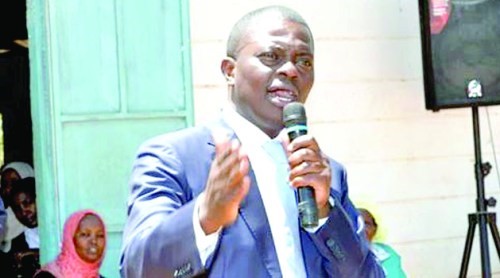Ten years ago when Kibwezi West MP Patrick Musimba announced his bid as an Independent candidate, political analysts dismissed him as a non-starter.
Today, he is not only a front-runner in the Makueni governor race but is also giving Senator Mutula Kilonzo Junior, the Wiper gubernatorial candidate headache, having won the MP seat twice as an Independent candidate against many odds.
Musimba set the stage for a titanic battle with Wiper leader Kalonzo Musyoka when he launched his bid on Friday. The following day, Kilonzo Jnr took on Musimba, saying even if he does not capture the seat, it should not go to the MP, whom he portrayed as a fraudster.
“We cannot leave Makueni to fraudsters,” he said at a church event without elaborating.
The Independent Electoral and Boundaries Commission has also cleared real estate mogul David Masika (ODM), scholar Emmanuel Mutisya (United Democratic Alliance) and Anderson Mwanza (Independent) to run in the race.
Telling from the campaigns they have mounted, however, they are seen as underdogs compared to the two youthful lawmakers. Whereas Kilonzo Jnr banks on Kalonzo’s strong network in the county, Musimba is banking on the support of local allies of Azimio-One Kenya Coalition presidential candidate Raila Odinga and his Kenya Kwanza Alliance challenger William Ruto.
The highlight of the thanksgiving ceremony held at Makindu market was Musimba’s endorsement by Azimio and UDA candidates led by Makueni Deputy Governor Adelina Mwau, the UDA Woman Rep candidate. They said Musimba was the best candidate to succeed Governor Kivutha Kibwana.
The lawmaker, who enjoys a near-fanatical following in his constituency, has lined up a feeding programme targeting all local primary schools ahead of the August 9 election. He plans to address water shortage and food security if elected.
Buoyed by the endorsements, Musimba set himself on a collision path with Kalonzo, who has been rallying the region behind Kilonzo Jr. While campaigning for Raila in Makueni last week, the Wiper boss commended Kilonzo Jnr alongside Kitui Senator Enoch Wambua and Makueni MP Daniel Maanzo “for standing firm” when he blew hot and cold on joining Raila’s camp. People Daily






